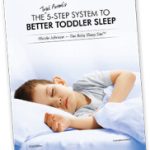
When babies are sick, it can mean long sleepless nights for everyone in the house. What remedies can you use to treat your babies with mild illnesses such as a cold, fever, or flu? How do you help your sick baby sleep? And, how can you protect your baby from getting severely ill? If you’re a parent who works in construction areas or factories, you may also ask whether exposure to chemicals in your workplace might affect your baby’s health.
For instance, asbestos is a dangerous substance. It can be present in construction materials, such as bricks, tiles, and wallboard. Ingested or inhaled asbestos’ may cause severe medical conditions like mesothelioma, a rare cancer condition that can affect the linings of the lungs, abdomen, and heart. Check out The Mesothelioma Group website for more information on the condition’s stages, symptoms, and treatments.
Hopefully, this isn’t the case for your family!
Here, we’ll explain various remedies you can use to treat your baby’s mild illness including ways to help your sick baby sleep. In addition, we will share information on ways to protect your baby from asbestos exposure that can lead to severe illnesses like mesothelioma. Lastly, you’ll know how risky workplace environments like asbestos-exposed areas can affect your baby’s health.
Read on to learn more about ways to treat your sick baby.
5 Remedies for Treating Common Baby Illnesses
Here are five options for treating your baby:
1.Fever-Reducing Medications
You can use over-the-counter fever-reducing medications if your child is feeling unwell due to a fever. However, these drugs don’t eliminate the cold virus. Letting your child have a low-grade fever may be beneficial since it’s one way their body can defend itself against the virus.
Only give acetaminophen to babies who are less than three months old only after they have seen a doctor and the doctor has approved it. Please note, however, that that you should NOT give ibuprofen to children under six months, those continuously throwing up, or those dehydrated. Moreover, use these drugs for the shortest amount of time possible. If you give your baby a pain reliever, follow the dosing instructions carefully.
Lastly, if you have concerns about the recommended dosage for your child, please contact your doctor.
2. Steam Bath
A steam bath may help relieve a congested nose and facilitate easier breathing for the infant. While holding your infant outside the shower, turn the bathroom into a steam room by running the hot water for 10 to 15 minutes. You’ll probably wind up sitting on the closed toilet seat, so make yourself as comfortable as possible.
3. Give Your Baby Plenty of Fluids
It’s crucial to drink liquids to stay hydrated. The best option for your baby is either breast milk or formula. Encourage your infant to drink the recommended amount of liquids and there should be no need for additional fluids. If you are a breastfeeding mother, keep breastfeeding your child if you can. Additional defense against bacteria and viruses that cause colds comes from breast milk!
4. Suction Your Baby’s Nose
Use a rubber bulb syringe to keep your baby’s nasal passages open. Expel the air by pressing down on the bulb syringe (with the tip NOT in your baby’s nose.) Then, with the bulb’s tip pointing toward the side and back of the nose, you can insert it into your infant’s nostril about 1/4 to 1/2 inch deep. While it suctions the mucus from your baby’s nose, let go of the bulb while holding it in place.
Afterward, take the syringe out of your child’s nostril and squeeze the bulb while holding the tip down to release the liquid onto a tissue. For each nostril, repeat as necessary. Always wash the bulb syringe with soap and water after use.
5. Saline Drops or Mist
Your baby’s doctor might suggest using saline nasal drops to moisten nasal passages and break up thick nasal mucus. Search your local pharmacy for these over-the-counter drops. If your doctor approves, apply saline nasal drops, wait a short while, and then suction the mucus out of each nostril with a suction bulb.
How to Help a Sick Baby Sleep
Most of the time, sick babies experience sleeping challenges with frequent night-waking, short naps, and the need for extra comfort. Typical ways parents can help their sick child sleep better may include:
- Keeping the room airy without being drafty.
- Encouraging your baby to doze off when they must, perhaps by reading them a story.
- Giving your child a lot of liquids. If they are old enough for solids, don’t worry about giving them food for the first day or so unless they request it. Appetites are lower during illness.
- Try not to worry about breaking your “sleep rules” or about sleep training during this trying time.
- Keep wake windows shorter during illnesses. Your baby may sleep on and off all day if they have a fever and that’s okay.
How to Protect a Baby From Getting Severely Ill
If you notice any of the following, you need to take your baby to the doctor immediately.
- Your baby’s not drinking enough or experiencing frequent nausea or diarrhea. These may be symptoms of early dehydration.
- The baby shows signs of a general lack of awareness or listlessness. Something might be wrong if your baby is exhausted and isn’t responding as they usually do.
- Your baby has a rectal temperature of 38.3°C (100.4°F) or higher.
Additionally, if you work in an asbestos-exposed area, always change your clothing before returning home to protect your loved ones, such as your baby, from secondary exposure. Asbestos fibers can be embedded in the sofa, and other pieces of furniture, so make sure to be extra careful.
Conclusion
Due to today’s research and medical technology, people have tried and tested various options for treating their baby’s sickness, whether mild or severe. Aside from the common remedies mentioned in this article, make sure you also encourage lots of rest. Give your little one lots of love and cuddles to help them feel more relaxed whenever they’re sick.
References
1. Common cold in babies https://www.mayoclinic.org/diseases-conditions/common-cold-in-babies/diagnosis-treatment/drc-20351657
2. Factory Workers and Asbestos https://www.asbestos.com/occupations/factory-workers/
3. The best baby cold remedies—and the ones you should avoid https://www.todaysparent.com/baby/baby-health/best-baby-cold-remedies/
4. Natural Ways to Treat Your Baby’s Cold https://www.webmd.com/parenting/baby/ss/slideshow-natural-cold-remedies
5. Secondary Asbestos Exposure & Mesothelioma https://www.asbestos.com/exposure/secondary/
Credit : Source Post
 If you are tired of wading through stacks of baby sleep books that just aren’t working, if you are beyond exhausted and just can’t solve your child’s sleep problems on your own…then personalized sleep consulting is for you. We have been around since 2008 and invite you to tap into our MANY years of experience. Our team of expert consultants will create a Personalized Sleep Plan® just for your family and then support you through every step of implementing your plan. We encourage you to consider our personalized, one-on-one baby and toddler sleep consultation packages if you want to see real, meaningful results now. Your consultation package also includes ample follow-up help, designed to help you troubleshoot problems and tweak your plan as needed.
If you are tired of wading through stacks of baby sleep books that just aren’t working, if you are beyond exhausted and just can’t solve your child’s sleep problems on your own…then personalized sleep consulting is for you. We have been around since 2008 and invite you to tap into our MANY years of experience. Our team of expert consultants will create a Personalized Sleep Plan® just for your family and then support you through every step of implementing your plan. We encourage you to consider our personalized, one-on-one baby and toddler sleep consultation packages if you want to see real, meaningful results now. Your consultation package also includes ample follow-up help, designed to help you troubleshoot problems and tweak your plan as needed. For those persistent nighttime struggles, check out The 3 Step System to Help Your Baby Sleep. Using the same unique approach and practical tools for success, this e-book helps you and your baby sleep through the night.
For those persistent nighttime struggles, check out The 3 Step System to Help Your Baby Sleep. Using the same unique approach and practical tools for success, this e-book helps you and your baby sleep through the night. If you’re looking for ways to get your baby or toddler into a healthy sleeping routine during the day, explore Mastering Naps and Schedules, a comprehensive guide to napping routines, nap transitions, and all the other important “how-tos” of good baby sleep. With over 45 sample sleep schedules and worksheets, Mastering Naps and Schedules is a hands-on tool ideal for any parenting style.
If you’re looking for ways to get your baby or toddler into a healthy sleeping routine during the day, explore Mastering Naps and Schedules, a comprehensive guide to napping routines, nap transitions, and all the other important “how-tos” of good baby sleep. With over 45 sample sleep schedules and worksheets, Mastering Naps and Schedules is a hands-on tool ideal for any parenting style. For those persistent toddler sleep struggles, check out The 5 Step System to Help Your Toddler Sleep. Using the same unique approach and practical tools for success, this e-book helps you and your toddler sleep through the night and enjoy a better daytime schedule.
For those persistent toddler sleep struggles, check out The 5 Step System to Help Your Toddler Sleep. Using the same unique approach and practical tools for success, this e-book helps you and your toddler sleep through the night and enjoy a better daytime schedule. Join our VIP Members Area packed with exclusive content and resources: e-Books, assessments, detailed case studies, expert advice, and more. As a VIP member, you’ll also enjoy a weekly chat with an expert sleep consultant.
Join our VIP Members Area packed with exclusive content and resources: e-Books, assessments, detailed case studies, expert advice, and more. As a VIP member, you’ll also enjoy a weekly chat with an expert sleep consultant.



